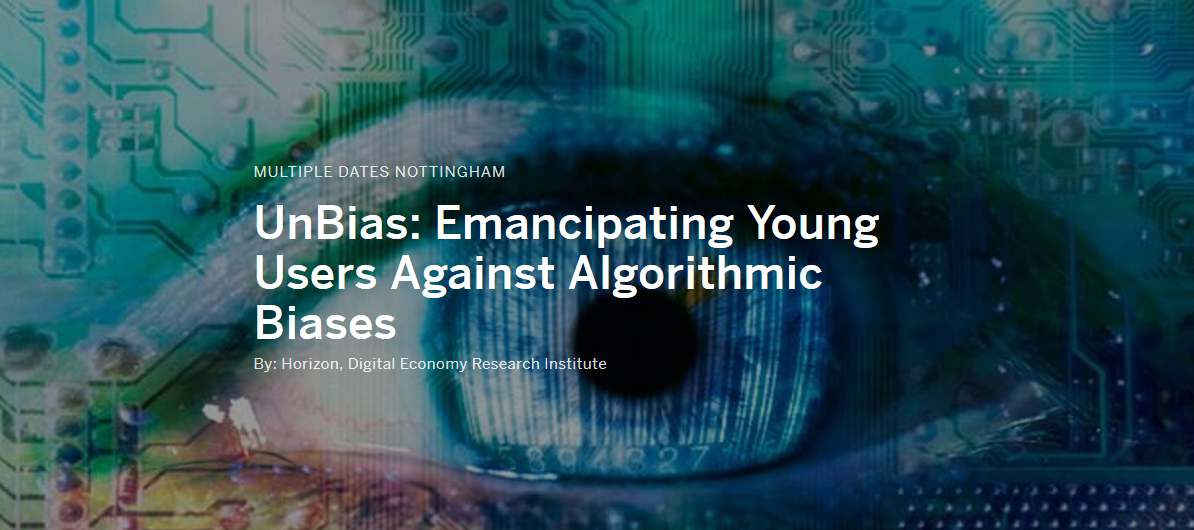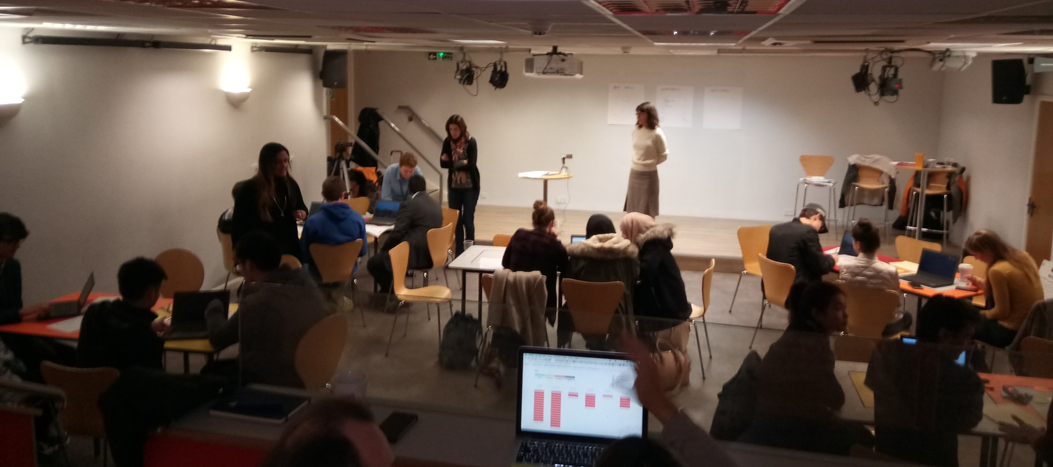 The first youth jury sessions of the UnBias project took place last weekend and were highly interesting and thought provoking. Despite the cold and rainy weather, we had a great turnout with nearly 30 young people choosing to attend. Our youth jurors mostly ranged in age from 13 to 18 and took part in two interactive activities.
The first youth jury sessions of the UnBias project took place last weekend and were highly interesting and thought provoking. Despite the cold and rainy weather, we had a great turnout with nearly 30 young people choosing to attend. Our youth jurors mostly ranged in age from 13 to 18 and took part in two interactive activities.
Both activities were designed to engage the participants in issues surrounding the existence of algorithms and their potential to influence online browsing behaviours. In the first activity we put the jurors into small groups and asked them to carry out some simple tasks that involved searching online and using recommendation systems. These tasks required them to interact with the algorithms that power these services and we were interested to see how they made decisions when browsing – for instance, what browsers they used and how they navigated through and responded to search results. The jurors really engaged with the task and it was interesting to discuss it with them afterwards to find out the rationale for their selections. For instance, even though they had a choice of web browsers, most of them used Google Chrome without really making a deliberate choice to do so and they also drew on their own priorities to make sense of and filter all the information shown to them.

This discussion naturally led on the second activity of the session – a group discussion of algorithms. This discussion focused on our jurors’ understandings of the ways that algorithms drive what users see online and their potential to influence browsing experience and even be biased. Elvira led the discussion and carefully shaped it to draw out the opinions of our participants without steering their views in any particular direction. Discussion covered the benefits that algorithms can bring in helping us to sift through the vast amounts of information available online but also raised a number of concerns about their negative implications. The jurors spoke about lack of transparency as algorithms are often proprietary, meaning that we do not know exactly how they operate. They also highlighted the potential for algorithms to result in discrimination, for instance by providing different information to different types of user. Suggested recommendations on how to address these issues emerged from the discussion: could users be able to give input into the design of algorithms? Should online providers disclose what information is being collected and acted on through their proprietary algorithms? Our jurors showed awareness of the tensions that can make these kinds of solution hard to put into practice but also expressed a strong desire for fairness and sense of user rights.
We were very impressed with how articulate our youth jurors were and how much awareness they showed about the issues we asked them to discuss. We realised that they act in the online world in highly sophisticated ways. They are not passive recipients of digital culture but are active, highly capable users. Their opinions are very valuable and their voices deserve to be heard and acknowledged.

One thought on “UnBias Youth Juries at Game City – Nottingham”